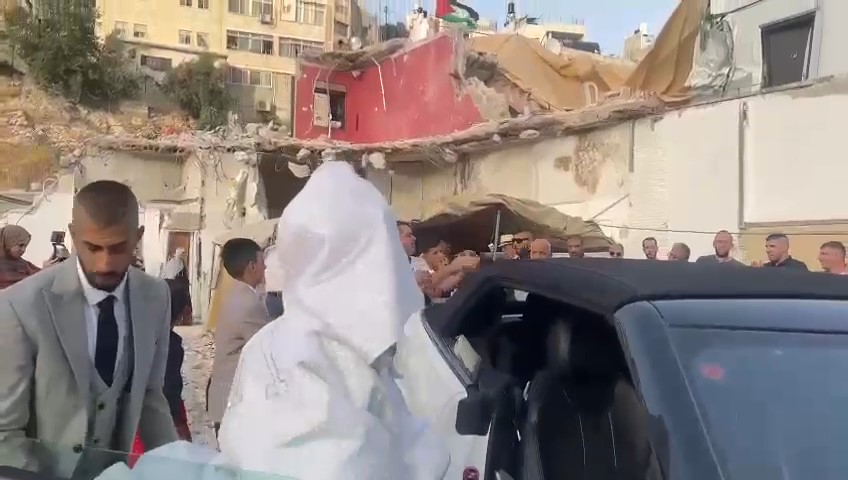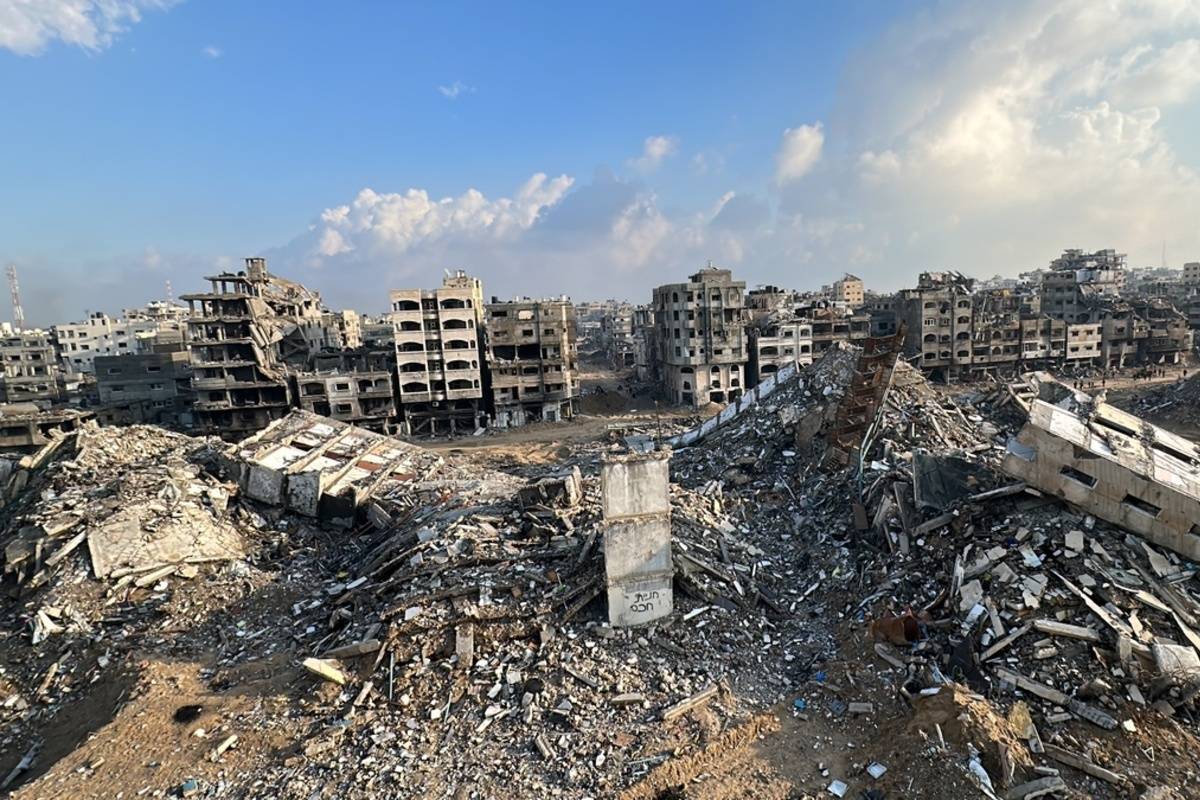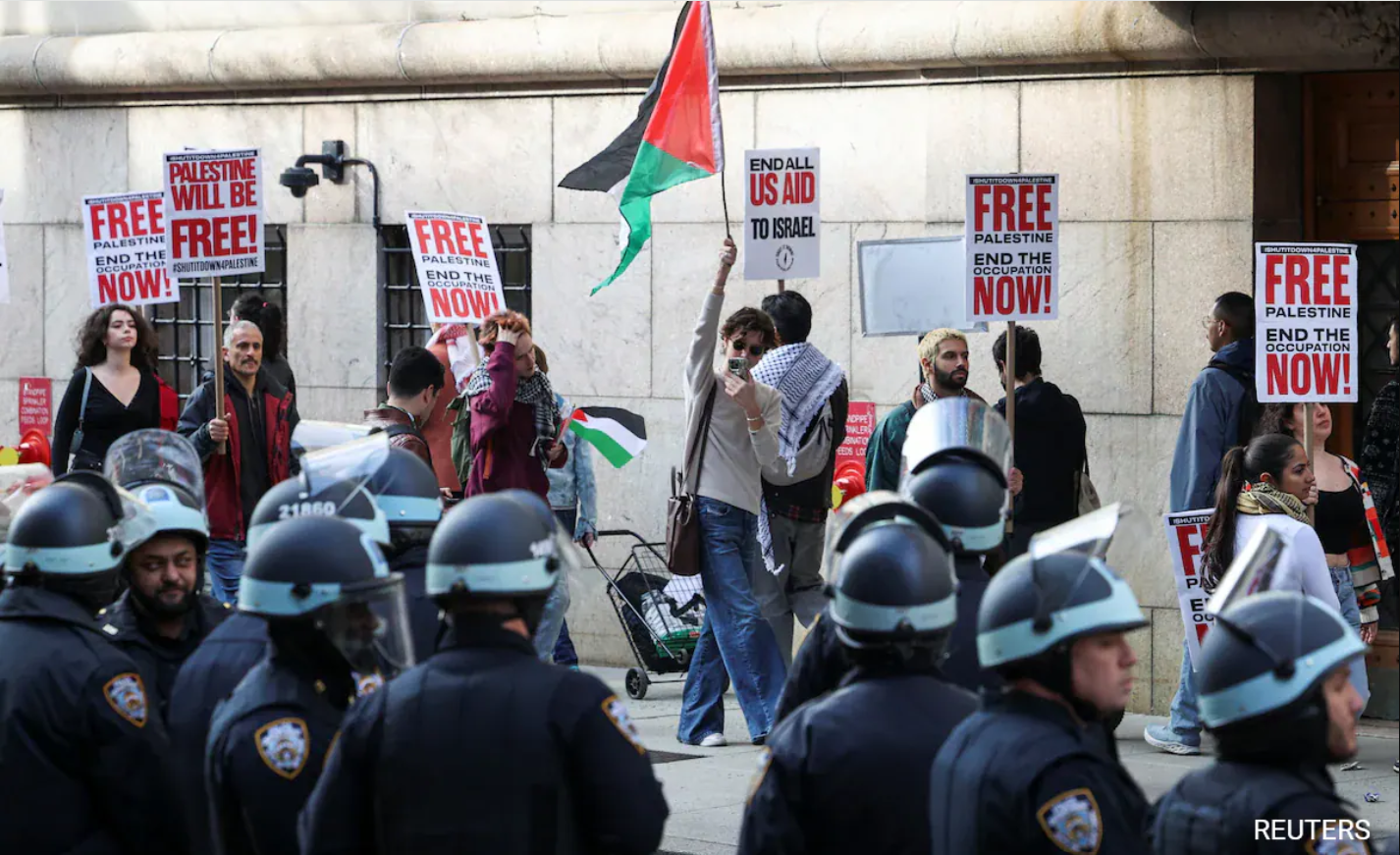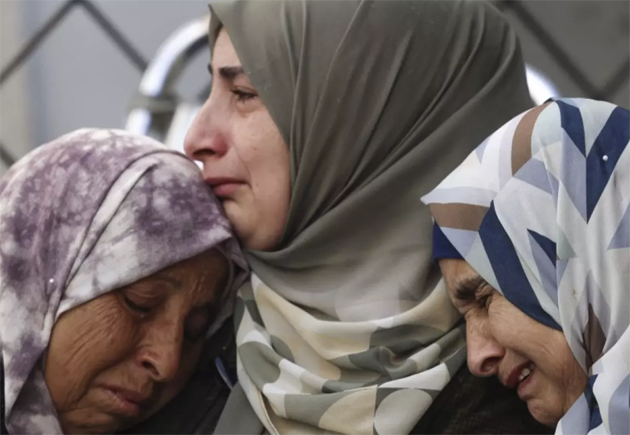
Occupied Jerusalem – Fares Rajabi and his brothers had nothing much to offer their only sister on her wedding day, but to hold her hand while they carefully walked her to her groom, through the rubble of their demolished home. On May 10, Israel’s Jerusalem municipality bulldozers tore their family home to the ground, turning it to dust.
Nonetheless, Faris could not hide his joy for his sister, who would be moving to her new husband’s home, now her only shelter, after their family’s house was reduced to rubble and debris.
The bride, decked out in white, came out of their demolished home in Ein Al Loza, Silwan, surrounded by her extended family who insisted on being present, not only to share in her happy day but also to thwart Israel’s attempts at ruining her wedding. Earlier, an army patrol car raided the area, almost wrecking the entire day.
Residents of Silwan say they were deeply moved by scenes of Fares’s sister as she walked with her brothers among the ruins of her family home. The people of her town gathered around in solidarity with the family and to share in their bittersweet day.
Fares’s was just one Rajabi family targeted by Israeli occupation authorities who lived in the same apartment building. In all, 40 people called this building home, which Israeli authorities demolished under the pretext of lacking a building permit.
Fares, 34, was livid. “[Israeli] municipality teams did not even allow us to take out belongings out,” he said. “This building was established in 2000 and is comprised of three floors and five apartments. Apparently, it was not enough for Israeli authorities that we have paid a total of approximately ILS300,000 in municipal violations in addition to lawyer and engineer fees.”
The Rajabis were not the only Jerusalemite family forced to hold their daughter’s wedding under extraordinary circumstances, due to Israeli measures that violate Jerusalemites’ right to housing and freedom of movement more often than not.
In November of last year, Jerusalem Governor, Adnan Gheith was prevented from attending his only daughter Muna’s wedding, after the Israeli military order barring him entry into the West Bank was renewed.
Since 2018, Israeli authorities have persecuted Ghaith, slapping him with one military order after another, subjecting him to numerous procedures ranging from being barred entry into the West Bank, to prohibiting him from communicating with various leaders and personalities and putting him under house arrest in Silwan. This is over and above the dozens of arrests and summons for questioning he has endured over the years. These measures have had a profound effect on his family, which was forced to celebrate their daughter’s wedding without him. His only possible role was to walk her to the door of her Jerusalem home, where she was joined by her groom, who whisked her off to Ramallah, where the wedding party was being held.
At the time, the Ghaith family tried to wait until their father’s house arrest was over on November 21. They had already postponed Muna’s wedding more than once, once waiting for Adnan to be released from detention and then again because of his house arrest. Then days before the last house arrest order was due to end, occupation authorities renewed it. By then, it was too late to change the wedding date again and Muna was married without her father, on a day every father and family wait for.
Still, Adnan would not be completely deterred from participating in Muna’s wedding. On the day, when he walked her to her groom’s car, his entire family and residents from Silwan, gathered around, throwing an impromptu celebration at the entrance to their home, in the midst of Adnan’s tears as he bid his daughter farewell.
As for the Rajabi house, it is one among thousands targeted by Israeli municipal authorities in Jerusalem. Since the start of this year, the municipality has demolished scores of homes in several areas of the city, particularly Silwan, where also over 6,870 other administrative and judicial demolition orders have been distributed.








